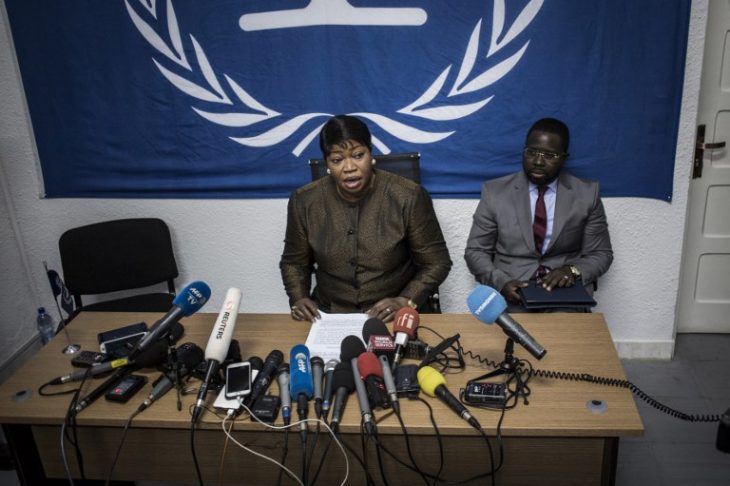It was an eventful week for transitional justice. Human rights activists in the Democratic Republic of Congo called on the oft-criticized International Criminal Court (ICC), whilst Human Right Watch said the ICC is inciting national jurisdictions to act. And in France, two Rwandan mayors accused of genocide returned to court for appeals proceedings seen as a test for universal jurisdiction.
This week also saw World Press Freedom Day, with this year’s focus on the link between information, justice and the rule of law.
Freedom of information is under more threaten than ever, in both developing and developed countries, as JusticeInfo notes. This is the case in countries such as the United States, Turkey, Egypt, Hungary and many more.
But another obstacle is the indifference of which we are all guilty. “Indifference to reconciliation processes, the slow work of Truth Commissions, the interminable trials of the International Criminal Court, seen as not spectacular or sexy enough for much coverage in the media or on social networks,” writes JusticeInfo.net.
The DRC is an example of where human rights activists are asking the ICC to be more active in prosecuting the “real” perpetrators of intercommunal violence manipulated by the authorities to stay in power. The response of ICC Prosecutor Fatou Bensouda on a visit to the country was cautious, as she urged the Congolese courts to act. This is talking to the wind, according to activists, who know the hold the Kabila government has on all the apparatus of State.
However, in some cases the ICC has provoked national courts to act, writes our Hague correspondent Stéphanie Maupas. In Pressure point: The ICC’s impact on national justice, Human Rights Watch also looks at four cases -- Guinea, Colombia, Georgia and the UK, where the ICC has used its “preliminary examination” tool.
In Guinea, a massacre was perpetrated in Conakry stadium on September 28, 2009, leaving at least 156 people dead,” writes JusticeInfo. “The ICC Office of the Prosecutor decided to open a preliminary investigation, which pushed the country to open its own investigations. The proceedings of the national judicial authorities have been monitored all along by the ICC Prosecutor, and last December twelve people were charged in Guinea, including former president Moussa Dadis Camara. It remains to be seen if they will be brought to trial. The Guinea case could set a precedent.” But other ICC preliminary examinations have proven ineffectual and “stemmed more from a visibility policy than a real strategy,” writes Stéphanie Maupas, who concludes that “Human Rights Watch is simply urging the ICC to use the powers it has, without over-estimating the chances of success”.
Another success for transitional justice is the 15 year jail sentence handed down in Switzerland on former Guatemalan police chief Erwin Sperisen, found guilty in a re-trial of complicity in the murders of seven prisoners in 2006. Meanwhile in France, appeals proceedings opened in Paris on May 2 for two former Rwandan mayors accused of genocide and crimes against humanity. “This new trial under universal jurisdiction comes 24 years after the crimes and 6,000 kilometres from their little commune of Kabarondo in eastern Rwanda,” writesJusticeInfo.net.
On the other hand, things appear to be going backward in Tunisia where, according to lawyer Halim Meddeb, transitional justice is under threat. “Transitional justice has always been in danger in Tunisia,” says Meddeb of Lawyers without Borders (ASF) in an interview with JusticeInfo.net. “Neither the current authorities nor the previous ones have supported this process. The authorities want to end the work of the Truth Commission and bury the whole process in its wake.”







